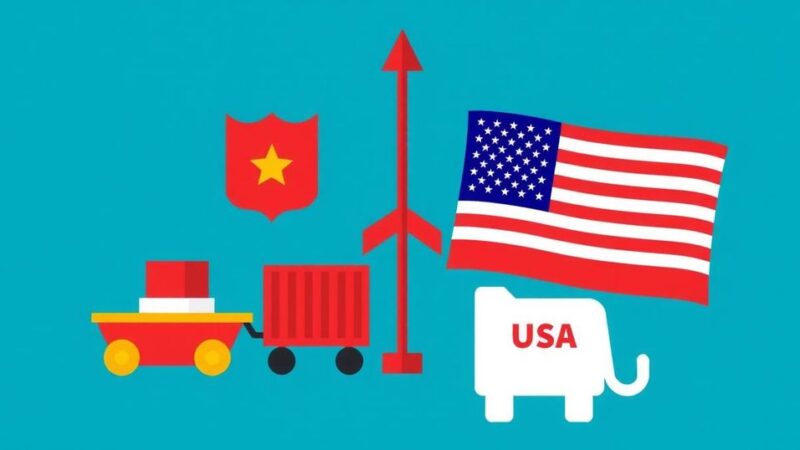A sustainable global universal basic income (UBI) can be implemented through a ‘cap and share’ scheme for fossil fuel extraction, as highlighted by Pope Francis during the World Meeting of Popular Movements. This approach not only tackles climate change but also promotes income redistribution as a matter of social justice. Equal Right proposes that charging $135 per tonne for fossil fuel extraction could generate significant funds for UBI, supplemented by progressive wealth taxes. Establishing a Global Commons Fund could sustain UBI and invest in green initiatives, offering a holistic solution to economic disparities and environmental challenges worldwide.
A sustainable global universal basic income (UBI) can be established through implementing a ‘cap and share’ mechanism for fossil fuel extraction. This approach not only addresses climate change but also enables income redistribution in a socially just manner. In September, Pope Francis emphasized the necessity of instituting a global UBI during the World Meeting of Popular Movements, reiterating that such a scheme is both an act of compassion and an embodiment of justice. He has become a prominent voice within a growing international advocacy for unconditional monthly cash payments to all individuals, underscoring the right to economic security. The rationale for a global UBI extends beyond mitigating poverty; it also emphasizes social justice. Wealth concentration in the Global North, resulting from historical exploitation, has created a fiscal imbalance detrimental to the Global South. Consequently, many Southern nations lack the resources required to finance their own UBIs. A global UBI would facilitate the eradication of poverty while ensuring a just redistribution of wealth from affluent to less wealthy nations. Despite criticisms regarding the financial implications of implementing a UBI, there are sustainable solutions available. Research conducted by Equal Right, a nonprofit advocating for UBI, illustrates that imposing a charge of $135 per tonne on global fossil fuel extraction could potentially raise approximately $5 trillion annually, thus establishing a foundation for a global UBI of at least $30 per month. Additionally, enacting a progressive wealth tax on the world’s richest individuals could yield further income, allowing for enriched financial support for a UBI. The proposed scheme could become self-sustaining through the establishment of a Global Commons Fund (GCF), which would collect revenues from fossil fuel taxes, invest in green economic endeavors, and distribute UBI as dividends to all citizens. Drawing inspiration from the successful model of Norway’s sovereign wealth fund, which boasts a value of $1.7 trillion, the GCF is projected to attain sustainability within approximately 20 years. Furthermore, initial capital contributions from Global North nations would accelerate its development. Equally important is the necessity to cap carbon extraction to prevent further resource exploitation, reinforcing sustainable practices in the global economy. The proposed ‘cap and share’ model would intertwine the funding of a global UBI with efforts to combat climate change, thereby fostering a significant socio-ecological shift that is essential for realizing global fairness and stability. Moreover, evidence from various pilot programs across nations such as India and Brazil demonstrates that UBI can incentivize households to adopt greener fuel alternatives and contribute positively to climate mitigation efforts. As the international community gears up for COP29 and evaluates mechanisms to fulfill obligations under the Paris Agreement, Equal Right urges policymakers to embrace the potential of the ‘cap and share’ mechanism. This approach promises not only to finance a global UBI, as championed by Pope Francis, but also to facilitate climate action and economic equity in a synergistic manner. By adopting these innovative strategies, it is possible to ensure that no individual is sidelined during the pursuit of a sustainable future for all.
The concept of a global universal basic income (UBI) has emerged as a progressive response to address poverty and income inequality on a worldwide scale. This approach integrates economic support with climate action, promoting equitable access to resources and financial stability for the most vulnerable populations. The idea gained traction during a speech by Pope Francis, highlighting the moral imperative of redistribution in a world marked by stark financial disparities. The proposal seeks to set up a systematic financial framework capable of providing UBI while generating necessary funds via taxes on fossil fuels and wealthier individuals. Through this framework, the global community is encouraged to consider the shared responsibility of addressing both poverty and environmental concerns. The establishment of the Global Commons Fund (GCF) is proposed as an innovative solution to sustain this income while investing in green technologies and catalyzing economic reform in resource-limited countries. The intersection of climate justice and economic justice underscores the urgent need for integrated strategies to address systemic inequalities worldwide.
In conclusion, establishing a sustainable global universal basic income through a ‘cap and share’ scheme presents a viable pathway to facilitate economic equity while addressing the pressing climate crisis. By leveraging fossil fuel revenues and implementing progressive taxation on wealth, it is feasible to generate substantial funding for a UBI, which, if managed correctly, can serve as an effective tool against poverty and an incentive for transitioning toward a greener economy. The proposed Global Commons Fund (GCF) could not only ensure the longevity of the UBI but also support nations, particularly in the Global South, in overcoming debt cycles and advancing towards a sustainable future. Emphasizing the interconnectedness of climate and economic justice is crucial as we advance forward amid growing global challenges.
Original Source: www.aljazeera.com






